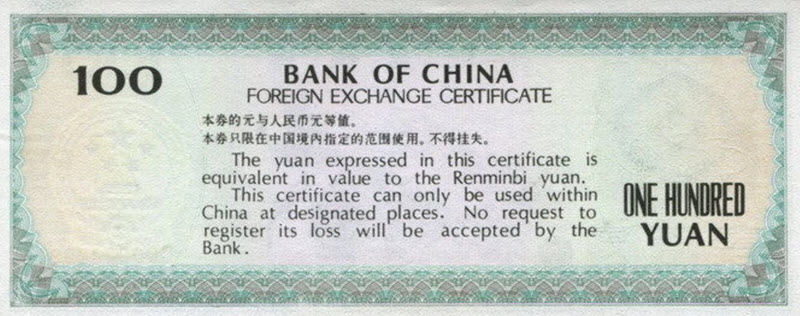If you are the owner of a Foreign Exchange Certificate, you have the right (but not an obligation) to convert a specified amount of one specific currency into another at a pre-specified exchange rate.
A foreign exchange certificate (FEC) is normally created as a bearer instrument. This means that it doesn’t have a formally registered owner and that the FEC can be sold or exercised by anyone who is in possession of the FEC.
When can I exercise my Foreign Exchange Certificate?
This depends on the individual foreign exchange certificate. According to DayTrading.com most foreign exchange certificates can be exercised on any day until they have expired, but there are exceptions – some foreign exchange certificates can only be exercised on a pre-specified date or on a few pre-specified dates.

Why would I purchase a Foreign Exchange Certificate?
Foreign Exchange Certificate originated because companies and other entities wish to protect themselves against currency risk. If a company knows that it will need to exchange one currency for another in the future, it can purchase a Foreign Exchange Certificate to nail down the exchange rate now and not have to worry about what the market exchange rate will be when the exchange takes place.
Foreign Exchange Certificates are also purchased by speculators. Speculators will not purchase the certificate to mitigate currency risk but in hopes of profiting from it. Fluctuation exchange rates make it possible to earn (as well as lose) money by speculating in foreign exchange certificates.
Last but not least, foreign exchange certificates can be employed by governments as a surrogate for national currency. A government using foreign exchange certificates in this manner is typically something that only happens in countries where the national currency is non-convertible or subject to exchange controls. In the past, the government in countries such as Ghana, the Soviet Union, East Germany, Poland and Burma (Myanmar) has used foreign exchange certificates in this fashion. Cuba’s convertible peso is, in a way, a type of foreign exchange certificate.
Example
This is an example of how a company can use a Foreign Exchange Certificate to mitigate currency risk.
Jeremy’s Steelworks is headquartered in Canada and uses Canadian dollars are their currency. They are scheduled to receive a large delivery of coal from the United States in December this year and know that they will need to pay 4 million USD for this shipment in January next year.

It is now June, and Jemery’s Steelworks are worrying about what the exchange rate will be in January when they must convert Canadian dollars to United States dollars to pay for the shipment. They want to know right now how much Canadian dollars they will need to get 4 million USD in January next year. They also want to be able to let potential investors know right now exactly how much this shipment of coal will cost the company.
Jeremy’s Steelworks decide to purchase a foreign exchange certificate today, that entitles them to exchange 5 million CAD for 4 million USD at any date until January 25 next year.
At the end of the year, Jeremy’s Steelworks can start thinking about if they want to exercise the foreign exchange certificate or not. If the exchange rate at the time means that they only need to pay 4.5 CAD to obtain 4 million USD on the open forex market, it would be foolish to exercise the FEC. If, on the other hand, 5.2 million CAD would be necessary to obtain 4 million USD on the open forex market, then Jeremy’s Steelworks will be happy that they have an FEC and will use it to exchange 5 million CAD for 4 million USD.
